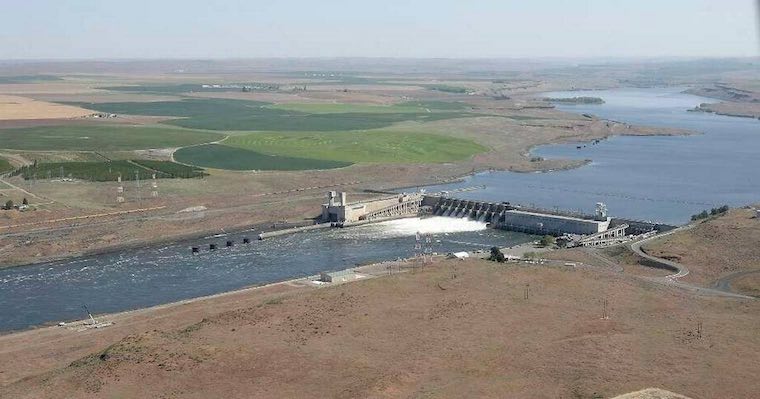forum
library
tutorial
contact

Biden Administration's Deal with Six Sovereigns
Sparks Debate Over Lower Snake River Dams
by Christopher Mitchell
KLEW, February 1, 2024
|
the film forum library tutorial contact |

|
Biden Administration's Deal with Six Sovereigns
by Christopher Mitchell
|
"The Columbia River System is the beating heart of the Pacific Northwest."
-- Congresswoman Cathy McMorris Rodgers
 WASHINGTON, D.C., United States -- The December 14 agreement between the Biden Administration and the Six Sovereigns, leading GOP lawmakers to believe that the removal of the four Lower Snake River dams is imminent.
WASHINGTON, D.C., United States -- The December 14 agreement between the Biden Administration and the Six Sovereigns, leading GOP lawmakers to believe that the removal of the four Lower Snake River dams is imminent.
The Six Sovereigns are the states of Oregon and Washington, and the Nez Perce, Umatilla, Warm Springs, and Yakama tribes.
This came to a head during a January 30 hearing of the Energy, Climate, and Grid Security Subcommittee, where two panels of witnesses testified.
Some were officials from the Biden administration while others were from regional industry.
Opponents of the breach argue that it would decrease local renewable energy supply and raise rates.
Proponents argue that energy supplies would not be affected and that conserving decreasing fish populations is crucial.
Eastern Washington Congresswoman Cathy McMorris Rodgers argues that the removal of the dams would be far more harmful to the region than beneficial.
"The Columbia River System is the beating heart of the Pacific Northwest. To put it simply, the Columbia River System is critical to our entire way of life." Rep. McMorris-Rodgers said.
McMorris Rodgers also said many Pacific Northwest voices should have been included in the discussions.
"CEQ cut a secret backroom deal to please radical environmentalists who are profiting from a campaign to tear out our dams," Rep. McMorris-Rodgers said.
Brenda Mallory, Chair of the Council of Environmental Quality, said that the agreement followed years of litigation on the Columbia River System, and whether it can be run without infringing on the Endangered Species Act protections of salmon and steelhead.
Mallory also said that the agreement does not overstep congressional authority.
"It does not exponentially raise rates on Bonneville customers. Instead, it will benefit fish and communities. It will provide stability and contain costs for ratepayers and navigation interests," Mallory said.
In the second panel of witnesses, Jim Matheson, CEO of the National Rural Electric Cooperative Association, and Jeremy Takala, member of the Yakama Nation's Tribal Council and Chair of their Fish and Wildlife Committee, speak to different sides of the debate.
Matheson, on the energy side, says that a shift away from hydropower is going against reliability.
"The four Lower Snake River dams are particularly valuable as a flexible, controllable, carbon-free resource, able to be ramped up or down with precision, to integrate intermittent renewables and make those renewables all the more valuable and to account for changing demands on the system," Matheson said.
Takala spoke about how important it would be to have abundant salmon runs throughout the Columbia River Basin, not just to tribal populations but the region overall.
"Thousands of jobs in the sport fishing and even commercial industry will be lost with diminished salmon runs. Those jobs and the millions of dollars in income and even taxes would return with a healthy fishery and those economic benefits need to be factored into the discussion," Takala said.
Also during the hearing, Administrator and CEO of Bonneville Power Administration, John Hairston, confidently said that under the agreement BPA would not have to buy back energy from a tribal energy program.
learn more on topics covered in the film
see the video
read the script
learn the songs
discussion forum
